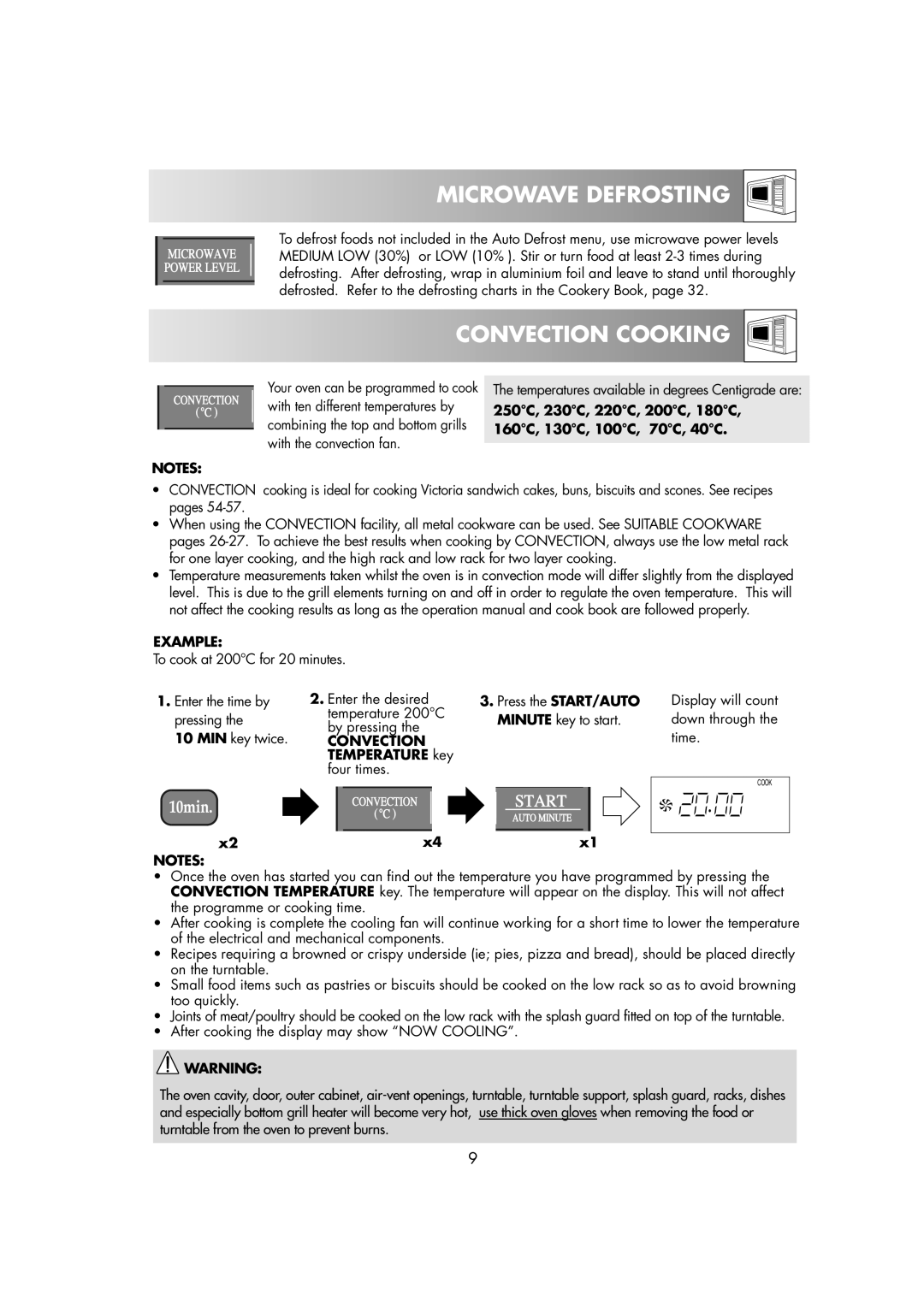R-82STM specifications
The Sharp R-82STM is a versatile and efficient commercial microwave oven that has gained recognition in the food service industry for its reliable performance and user-friendly features. Ideal for restaurants, cafes, and catering services, this model is designed to meet the rigorous demands of high-volume food preparation while ensuring consistent cooking results.One of the standout features of the Sharp R-82STM is its spacious 20-liter capacity, which allows for the heating and cooking of larger quantities of food simultaneously. This makes it an excellent choice for establishments that require quick turnaround times during busy service hours. The oven is equipped with a rotating turntable that ensures even distribution of microwave energy, promoting uniform cooking and reheating.
The R-82STM utilizes advanced microwave technology, specifically a 900W power output with variable power levels. This flexibility enables users to choose the optimal power setting for different types of food, making it suitable for a wide range of culinary applications—from defrosting and reheating to cooking a variety of menu items. With eight programmable memory settings, operators can easily recall their most frequently used cooking times and power levels, streamlining workflow in fast-paced environments.
Additionally, the oven is designed with user convenience in mind. The easy-to-read digital display and intuitive control panel allow for simple navigation, while the stainless steel interior provides durability and ease of cleaning. The door design includes safety features, such as a child lock and an automatic shut-off function, ensuring both user safety and energy efficiency.
The Sharp R-82STM also features a manual and automatic cooking modes, providing flexibility for both novice and experienced users. The manual mode allows for precise control over cooking times, while the automatic mode utilizes built-in sensors to adjust cooking parameters according to the type of food being prepared.
Overall, the Sharp R-82STM is a well-engineered commercial microwave oven that combines practical features with cutting-edge technology. Its robust construction, ease of use, and versatile capabilities make it a valuable asset in any food service operation, catering to the needs of chefs and kitchen staff while enhancing productivity and efficiency.

